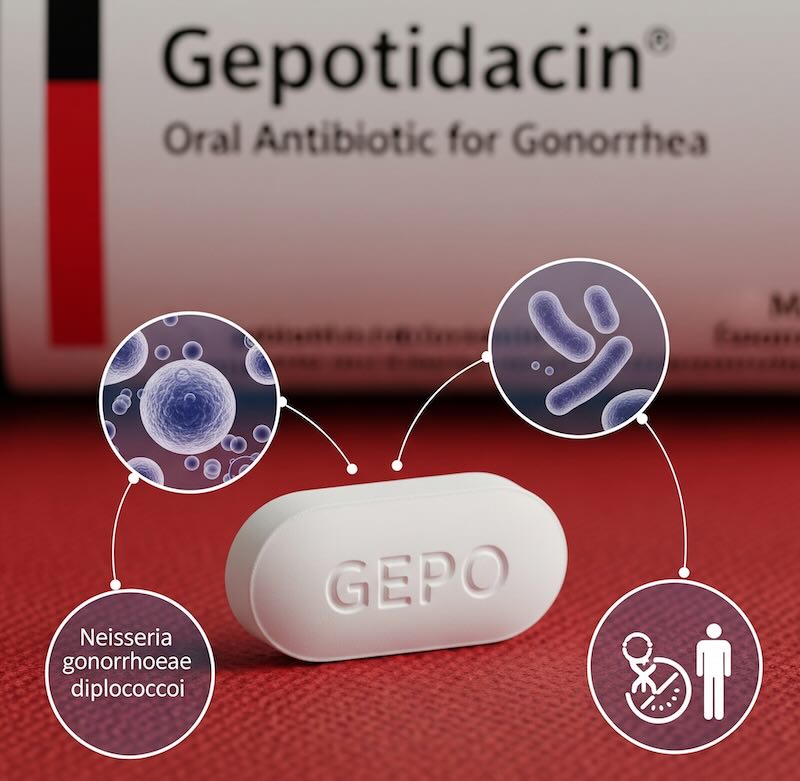Introduction
Gonorrhea, caused by Neisseria gonorrhoeae, remains a significant public health challenge globally due to escalating rates of antimicrobial resistance. Traditional treatments have become less effective as the pathogen quickly develops resistance to available antibiotics. As of 2023, over 600,000 cases were reported in the US, underscoring the urgent need for novel therapies to manage this sexually transmitted infection.
What is Gepotidacin?
Gepotidacin is a first-in-class oral triazaacenaphthylene antibiotic developed by GSK. Unlike current drugs, gepotidacin disrupts bacterial DNA replication by targeting a unique site on two topoisomerase enzymes—a novel mechanism that makes it effective against most strains, including those resistant to standard therapies. After its recent FDA approval in March 2025 for uncomplicated urinary tract infections, gepotidacin is now being evaluated for gonorrhea treatment.
Efficacy in Gonorrhea
The pivotal phase 3 EAGLE-1 trial recruited over 600 participants across six countries. The study compared gepotidacin—administered orally as two 3,000mg doses, 10–12 hours apart—with a single intramuscular dose of ceftriaxone (500mg) plus oral azithromycin (1g), which is the current standard of care. Gepotidacin demonstrated a treatment success rate of 92.6%, closely matching ceftriaxone/azithromycin’s 91.2%, with no persistent N. gonorrhoeae reported in either group. This non-inferiority is critical, as it offers comparable efficacy through an oral route, potentially making treatment more convenient and accessible.
Safety Profile
Phase 3 studies reported no severe or serious drug-related adverse events. Most side effects were gastrointestinal, typically mild to moderate in severity (diarrhea, nausea). The trial results affirmed gepotidacin’s safety and tolerability for patients, with no new safety concerns compared to established therapies.
FDA Priority Review and Approval Timeline
Due to the urgent need for new treatment options for gonorrhea, the FDA granted gepotidacin priority review. The Prescription Drug User Fee Act (PDUFA) decision date is set for December 11, 2025. If approved, gepotidacin would become the first oral antibiotic option for uncomplicated urogenital gonorrhea in patients aged 12 and older weighing ≥45kg, offering an important alternative to injectable therapies.
Clinical Implications
- Convenience: Oral administration may improve patient adherence, reduce barriers to care, and lower the need for clinic-based injections.
Antibiotic Resistance: Gepotidacin retains efficacy against resistant strains, addressing a critical gap as existing treatments lose potency.
Public Health Impact: Approval would mark the first major advance in gonorrhea therapy since the 1990s and help combat a rising threat labeled by WHO and CDC as urgent.
Conclusion
Gepotidacin represents a major leap forward in the fight against gonorrhea. Its novel mechanism, high efficacy, and oral route can revolutionize treatment, pending FDA approval. For patients and providers, gepotidacin brings hope for improved care and a powerful weapon against drug-resistant sexually transmitted infections.
For consultation and updates regarding gonorrhea treatment advancements and testing, contact Derma Clinic Kathmandu.
Key points:


